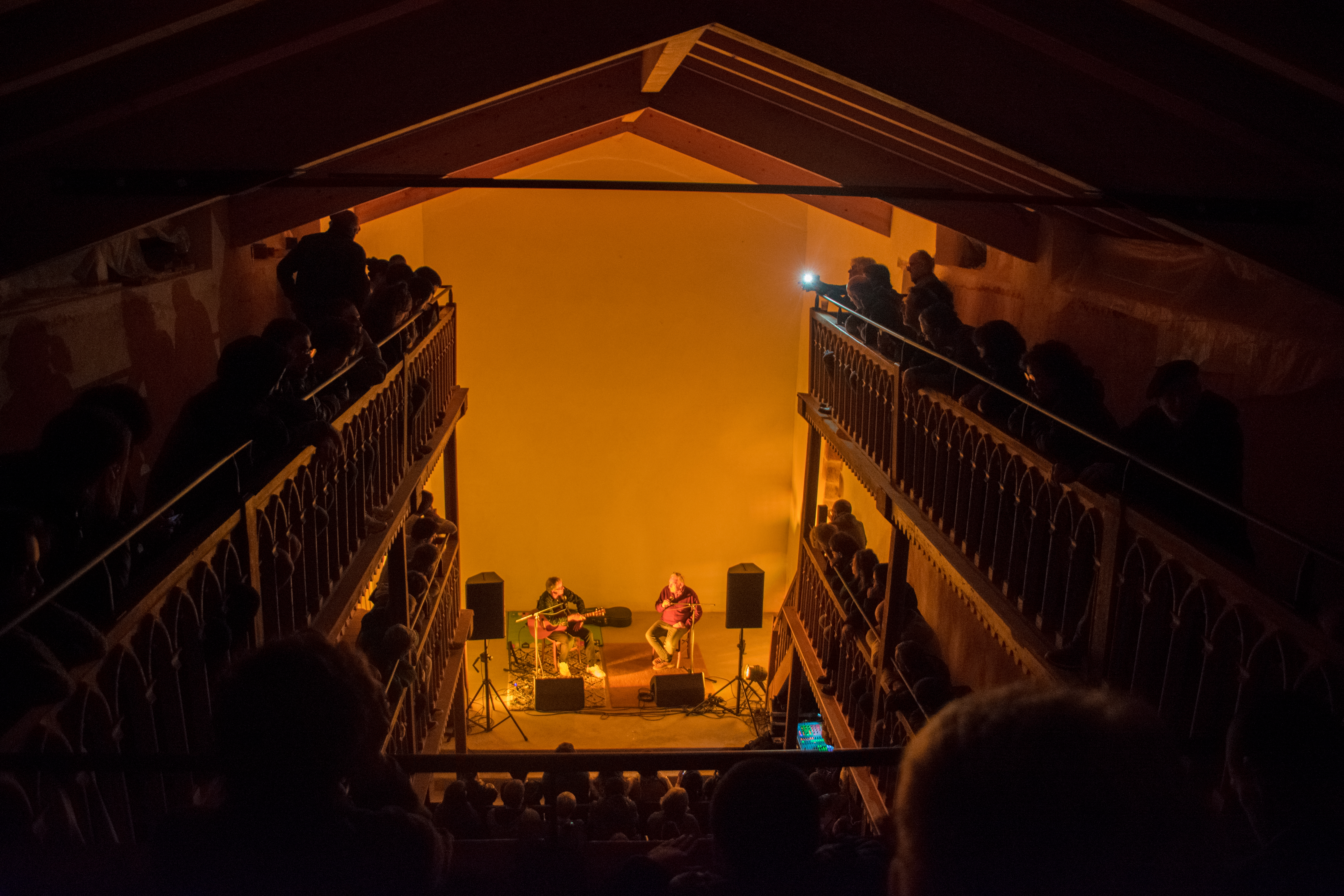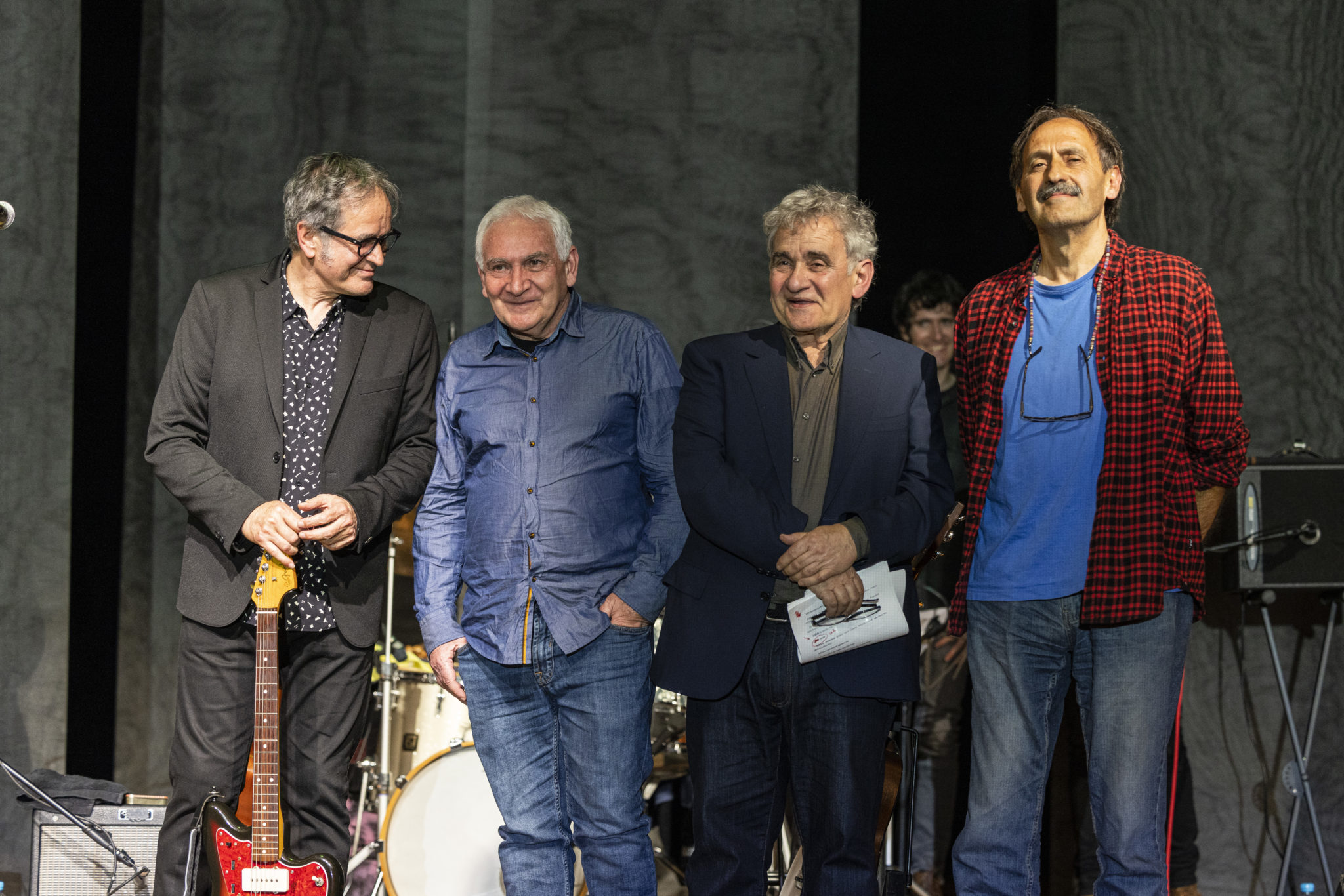"It seems that instead of building the nation, a football team is being built."
- On Tuesday, Joseba Sarrionandia offered a talk and colloquium organized by the Basque Committee of Aiete, in Donostia-San Sebastián. His pretext was the trilogy of the giants of Havana, but not so much literature, and he has talked a lot about life. The philosopher Irati Zubia has been in charge of contextualizing the program and guiding the program.

Zubia believes that the way of counting is an invitation to the interview with Patxi López. “What Sarri wrote at night, we at night, can take it to speak at sunset. The way to tell is suggestive: the topics that are substantial are drifted in a suggestive way. The night suggests a certain opacity, because it doesn’t tell us everything.” “Well, it’s not entirely true,” Sarri summarized, “because I’m very slow writing, and what I had started at night had to end my day.”
For Zubia, the singularity of these books is that “it is located for the first time” Sarri: “He writes us from Havana. From Havana looking at Havana, the Basque Country, the World, the past and the present”. The Basque country, colonialism, politics, the possibility of talking about assimilation, sovereignty, the nation and the small things that happen in the environment.
As Sarri explained, they are books to “talk about everything”, but written from “ignorance” and “humility”. He recognised: “XXI.mendera I’ve come out of place, I don’t get it right.” Like the rest, it is obvious that it is difficult for us to understand the speed of the century.
The invitation to “talk about anything” has been transferred to the reflections about Cuba, the Basque country, politics and again about Cuba.
Situation of the Basque Country
He believes he cannot seriously speak of the changes in the Basque Country in the last 40 years, “because he has been out”. But he sees Euskera as a language that has had to be modernized: “The Basque who had our aittitte-amamas has been lost as they come down to the city.”
A new “citizen Basque culture” has been created, but as a “subculture”: “But we are still minorities and anti-current. That sound of the mountain has disappeared, but this modern Basque also has trouble surviving.”
It relates it to the loss of political hopes and illusions: What is the desirable political future that we imagine? “Now there is no political hope.”
The judicial and victimizing political language
Instead of political strategies, he focused on the use of political language, following Aristotle, distinguishing three types of languages: “To speak beautiful (epidiptic), speeches to judge what happened (judicial) and to make decisions (deliberative). “I turn on television and listen to the first two. In the parliament that should be the center of politics there are only the first two, acting with tautology or victimization.”
People are concerned not to talk about politics. “Because the last decades have been traumatic” and precisely because of the predominance of judicial language in coordinates of victimiation-victimization.
Matiza: “It is not only for the armed struggle”, in Catalonia, also in Spain, because it sees this situation. “Like our parents, like the post-war people, we have learned to silence, from guilt.”
Upper fireplace brick
He has therefore called for "the need to return to zero". In the “youth” there were eternal discussions between Trosks, Maoists, etc. : “We had the nation and socialism in our pocket. Instead of plucking the fireplace out of the bricks, we were starting at the top. And the discussion was where the highest brick was placed.” Zubia recovers Sarri’s idea as a “national communication space”.
In fact, “the nation is nothing, it is what you do.” "It seems that instead of building the nation, a football team is being built. It is necessary to build from the bottom to the top, in the consensus, if there is no risk of a cult.”
Assimilation of machinery
Asked about the change that has taken place in the Basque Country, he has first highlighted the role of women, their presence and their importance. He also referred to cultural assimilation: In Euskal Herria “people think that their life is normal and not normal.”
It represents Basque society as a great machinery and “there is no one” outside it: “In our crew it was very different, we were out of the machine, half in ETA, the other half in drugs. Now they are all very integrated.” And he put the question, “Do you know where you will be next Thursday at 10 a.m.?”
He has compared it with Cuba: a different working culture, a strong distribution system but low production (“Fidel pretends to pay and we work”), a worldview and a different genesis, a sanctity, the god Olofi and the saints Changó and Yemayá, a culture of truth and lies…
There are eleven issues that affect us, in a conversation that we have been short of. “We’ve only just started,” Sarri said. The talk has continued with the intimate dinner organized by the Commission of the Basque Country of Aiete. And there too, the invitation to “talk about everything” has been transferred to the reflections about Cuba, the Basque country, politics and again about Cuba.
Beware of that view of the South. Firstly, to demystify the blind admiration of the green land, the white houses and the red tiles, unconditional love, fetishism associated with speech and the supposed lifestyle. It leaves, as Ruper Ordorika has often heard, a tourist idea... [+]
I didn't think parking in Vitoria would be so difficult. Or, rather, I didn't know that there could be such colorful marks painted on the edges of the road. No, I don't have a driving license, and yes, time was against us. At the last minute we arrived at the Main Theatre.
The... [+]
Joseba Sarrionandiarekin euskararen egoera eta errepresioa gartzeletan gaiaz. "Korrika 4"-ren prentsa bulegoak eskaini digu ondoko elkarrizketa argitaratzeko aukera. Joseba Sarrionandia Herrerako desterru urrunetik desterru hurbilago batetara ekarri zuteneko aukera... [+]
Joseba Sarrionandia, hemen eta han idazleari buruzko dokumentala estreinatuko dute larunbat honetan Iurretan. Askondon izango da, 18:30ean.
Duela urte bi eskainitako elkarrizketan kontatu zigun idazmakina zahar bat duela etxean, tekletako letrak borratuta dituena. Baina, irakurle sentitzen dela idazle baino gehiago. Bide horretatik, jardunaldiek eragindako sentsazioez gainera, literaturaz gogoeta egin du hurrengo... [+]
Joseba Sarrionandiaren "Izuen gordelekuetan barrena" poesian gaindi ibili naiz bidazti, basamortuan edota itsasaldian. Liburua argitaratu zenean, irakurrezina zela esan ei zion mundu guztiak idazleari. Haatik, 37 urte ez dira alferrik igaro euskal literaturaren eremu... [+]



















